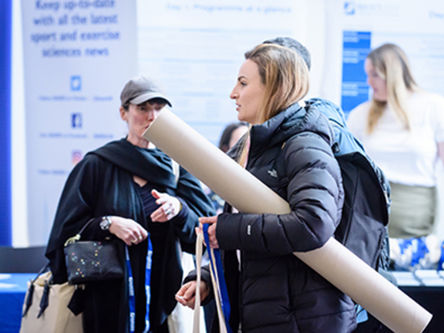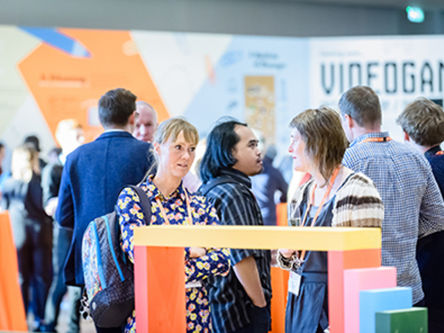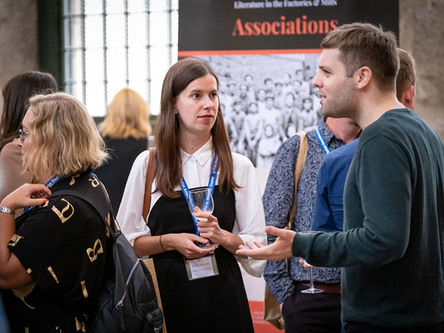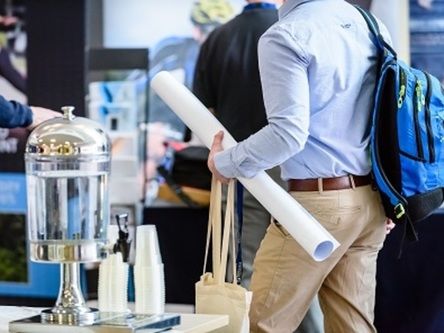As we continue to navigate the ‘new normal’ of the Covid-19 pandemic, the agility of the virtual conference as a way of meeting and sharing has really come to the fore.
From office meetings to large-scale conferences, where once we would meet in social groups to network, inform and collaborate, we now connect from behind our computer screen, engaging in isolation with others from around the world.
There is no doubt that video technology, coupled with the creativity of the conference sector, has ensured that Dundee & Angus Convention Bureau (DACB) and its Pathfinder partners and industry members remain a hub for collaboration while we wait for face to face conferences to return.
And with no clear end date in sight for the need to socially distance, virtual and hybrid meetings remain the go-to for professional events by providing an alternative platform for the conference stage.
However, virtual technology in the conference world is not without its challenges and for many, cannot fully replicate the whole conference atmosphere or the nuances of a face to face experience.
Professor Rod Jones, is from the University of Dundee’s School of Science and Engineering and has been involved with the International Concrete Conference since the 1990s, said that while virtual tech has boomed during Covid-19’s ‘new normal’, it was important not to underestimate the value of being able to meet in real-time.
“There is immeasurable value in terms of meeting face to face and that means people still want to do it. It’s like teaching online – it can be done but there is no interaction,” he explained. “Being able to meet face to face means being able to ask questions while you are chatting over coffee, it’s all part of a social bond.”
His colleague, Professor Moray Newlands agrees. “The conference is a key element in our marketing strategy as it is a way for us to meet our well-established connections and for them to learn more about our unique facilities. This exposure has given us leads to new research projects, funding and consultancy.”
As a temporary stop gap, virtual conferences certainly have their place, but issues of engagement still loom large. According to online event manager resource, EventMB, almost 50% of planners surveyed say their biggest frustration with virtual event tech is its inability to match the experience of live audience engagement.
This raises questions over the current limited ability to network meaningfully in the virtual conference space. And many agree that there’s still work to be done before the technology has sufficiently ‘matured’ to meet the demands of a large scale, full participation event.
But with the impact of Covid-19 forcing us to re-think how we do things, even in the short term, alternatives to conferences, meetings and conventions have to be found.
One organisation who has had to think on its conference feet is the Collaborative Action Research Network (CARN). The network cancelled its annual conference, which was due to take place in Dundee in early October with over 100 attendees, as a result of the Covid-19 pandemic.
With plans to reschedule the three-day event to October 2021, event organiser, Professor Karen McArdle from the University of Aberdeen, said they were still determined to deliver a successful conference, themed ‘Raised Voices in Recovery’, whether virtual or face to face.
“We anticipate it will be a blend of both; Dundee will be the central hub, and we are looking at having virtual hubs around Scotland and for people participating internationally. We also hope to have some people attending face to face, with due regard to social distancing.
“We are certainly challenged by the new normal and still have to explore the technology but are full of anticipation that this will be a good way forward.”
DACB’s business events manager, Karen Tocher acknowledges that virtual technology has a key role to play, both now and in the future of conferences and events, while the sector is working towards an eventual and safe return to a physical space.
“With the pandemic and subsequent lockdown, we have welcomed video and virtual technology as a way to ensure the region of Dundee, Angus, Fife and Perthshire remains a leader in the national and international conferencing sector.
“Going forward, while we look forward to returning to face to face events, with all the positives and challenges that may entail in life post-Covid-19, there is no doubt that video tech will become a more integrated element of the full face to face conferencing event mix,” she added.







